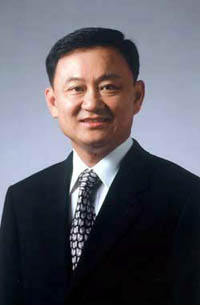Thai prime minister returns to his duties after seven-week leave of absence
Pending new elections yet to be scheduled, Thaksin heads a caretaker government with no Parliament to carry out legislative duties.

The leader of the opposition Democrat Party Abhisit Vejjajiva said Thaksin's return would create more political and legal turmoil, and other opponents vowed to resume street protests against him.
Seeking an end to the political crisis that ensued from an abortive April 2 general election is expected to be his top priority, while his critics, who accuse him of corruption and abuse of power, keep agitating for his removal from office.
Thaksin resumed work with determination, holding an unusual two-session Cabinet meeting - in the morning and afternoon - to tackle various issues, the AP reports.
Government spokesman Surapong Suebwonglee said Thaksin told the Cabinet that to resolve current economic problems, the government will have to focus on grass-roots growth in the countryside before moving to spur economic activity in urban areas.
Shortly after the April polls, Thaksin had handed over the power of acting premier to Deputy Prime Minister Chitchai Wannasathit, saying that he was taking "a rest" in the interests of political reconciliation.
His party won the polls, which were boycotted by Parliament's three opposition parties, but millions of voters marked the abstention box on their ballots as a protest against the Thai leader.
Thaksin had called the snap poll in an attempt to end pressure from the near-daily protests demanding he resign.
The boycott and abstentions meant that in some constituencies a winner could not be certified, leaving Parliament short of the quorum it legally needed to convene.
Last month, King Bhumibol urged the country's top courts to end the stalemate. The courts then invalidated the results of the election by declaring it undemocratic and unconstitutional.
Subscribe to Pravda.Ru Telegram channel, Facebook, RSS!


